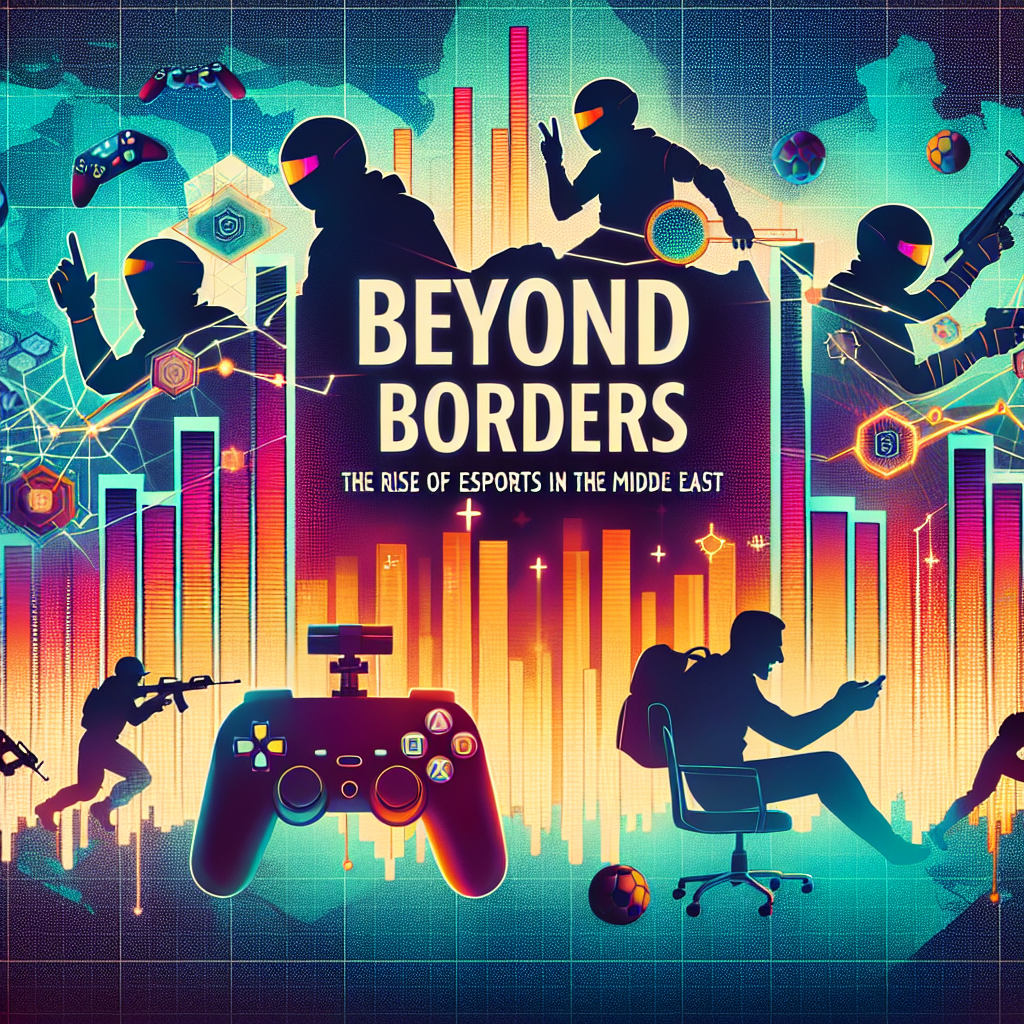Beyond Borders: The Rise of Esports in the Middle East
In recent years, the Middle East has emerged as a vibrant hub for esports, reflecting a global trend that transcends geographical, cultural, and economic boundaries. This burgeoning industry is not just reshaping entertainment options; it is fostering community spirit, economic investment, and technological advancement across the region. From grand tournaments that attract worldwide audiences to burgeoning local gaming cafes, the rise of esports in the Middle East signifies a unique cultural shift and a pivotal moment for young gamers and tech enthusiasts.
A Cultural Shift
Historically, the Middle East has been characterized by a rich tapestry of cultures and traditions. As digital technologies have permeated everyday life, the acceptance of video gaming as a legitimate form of entertainment has significantly increased. Governments and local organizations have begun to recognize esports’ potential to unite people and promote social interaction.
Media outlets are increasingly covering esports events and developments, while numerous influencers and content creators from the region are gaining popularity on platforms like Twitch and YouTube. This cultural acceptance has nurtured a generation of gamers who are both passionate and proficient, eager to participate in and consume esports content.
Economic Potential
The financial implications of esports in the Middle East are equally compelling. The region is witnessing significant investment from both public and private sectors, driven by the economic diversification agendas of many countries. Nations such as the United Arab Emirates, Saudi Arabia, and Qatar view esports as an avenue to attract talent, foster innovation, and stimulate tourism.
Events like the Saudi Arabian “Gamers8,” which boasts multi-million dollar prize pools, exemplify the growing scale of esports initiatives in the region. These tournaments not only provide competitive platforms for local and international teams but also boost local economies through tourism, job creation, and infrastructure development.
Investment and Infrastructure
For esports in the Middle East to thrive, substantial investment in infrastructure is essential. Recognizing this, governments and private enterprises are collaborating to enhance gaming facilities, internet connectivity, and supportive ecosystems. In recent years, cities like Dubai and Riyadh have proactively engaged in establishing esports arenas, incubators, and training facilities.
These investments aim to attract global esports events and enhance local talent development. Moreover, partnerships with established esports organizations and leagues are being forged to elevate the region’s standing on the global stage.
Community Engagement and Education
Another integral aspect of esports’ rise in the Middle East is its focus on community engagement and education. Various initiatives aim to develop not only players but also event organizers, broadcasters, and industry professionals. Universities and schools are increasingly incorporating gaming and technological disciplines into their curricula, nurturing a future workforce ready to innovate in the esports space.
Furthermore, community-driven events, local leagues, and grassroots tournaments are flourishing. These competitions offer aspiring gamers the opportunity to hone their skills, build networks, and gain exposure. The emphasis on community engagement fosters a sense of belonging and collective growth, where gamers gather to support each other and celebrate their passion for the medium.
Bridging Borders
Esports has the potential to transcend cultural divides and encourage collaboration across borders. The Middle East has historically been affected by regional disparities, but esports serves as a unifying force that can foster mutual understanding. Collaborative tournaments featuring teams from various countries demonstrate that gaming can bring together diverse communities, fostering camaraderie and competition regardless of political or social differences.
Challenges Ahead
Despite the rapid ascent of esports in the Middle East, challenges remain. Issues related to internet accessibility, technological infrastructure, and varying cultural perceptions of gaming continue to pose hurdles. Moreover, the regulatory environment around online gaming and esports is still evolving, requiring careful consideration from governing bodies to ensure a balanced approach.
Conclusion
The rise of esports in the Middle East is a compelling narrative of cultural evolution, economic potential, and community building. As countries in the region continue to invest in infrastructure, education, and community engagement, they are not merely building an industry; they are crafting a new cultural paradigm that resonates with the aspirations of a young, dynamic population.
With its sights set on becoming a global leader in the esports arena, the Middle East stands poised at a unique crossroads, where tradition meets innovation and gaming bridges borders. As this journey unfolds, the region’s diverse players, from casual gamers to professional athletes, are not just competing in tournaments—they are changing the game itself.




